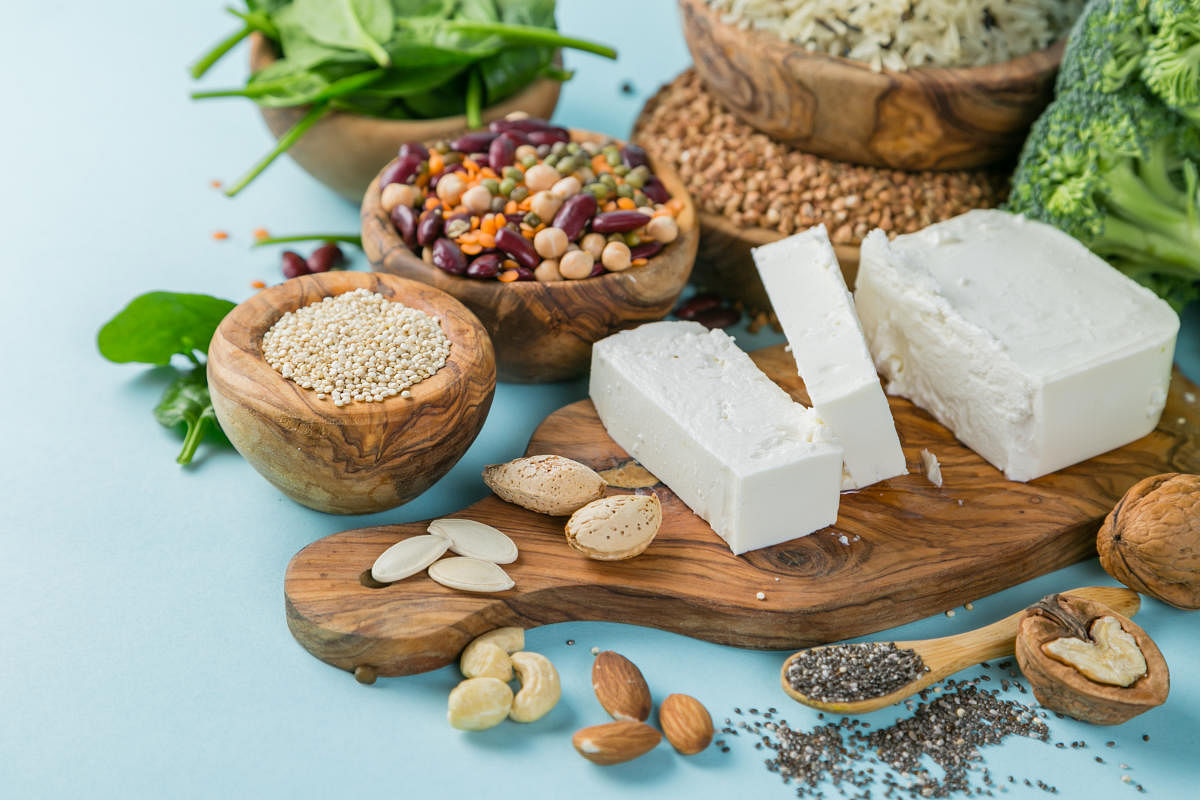
Monsoon brings with it common infections like cold, viral infections, gastritis, and other ailments like hepatitis, malaria, dengue, leptospirosis, influenza, typhoid etc. Since the humidity is high, microbial growth increases and so does the risk of infection. Most of these infections are food and water-borne.
Since children are carefree, they are at greater risk of these food and water-borne infections. Also, children and the elderly may have a weaker immune system, and thus their susceptibility to these infections also increases.
Here are some foods that help build up immunity and fight infections.
Protein
Protein is the most important macro-nutrient in the diet. Apart from the basic function of growth and development in children, to the maintenance of wear and tear in elderly, it helps in various functions, from building immunity, to building and maintaining muscle mass, fighting infections, to prevent and recover from illness and wound healing.
Foods like milk and milk products, chicken, fish, eggs and soya are good sources of protein. Dal and pulses are also important and indispensable sources of protein in Indian diets.
Milk and milk products like curd and buttermilk should be included in the diet at room temperature to avoid cold and cough. A dry fruit milkshake, fruit yoghurt, omelette and chicken soup can be had across age groups.
Omega 3 fatty acids
Omega 3 fatty acids are essential fatty acids that also have an immune-modulatory effect.
During monsoon, the risk of infection through food and water increases, boosting immunity would definitely help fight these infections to an extent. Omega 3 fatty acids are present in food sources like fish, shrimp, oysters, nuts and oilseeds like walnuts, pista, chia seeds, flax seeds, etc.
Turmeric
Turmeric has curcumin that has anti-oxidant, anti-microbial properties that inhibit microbial growth like Helicobacter Pylori (H Pylori), Methicillin-Resistant Staphylococcus Aureus (MRSA), etc., and prevents gastric ulcers, improves the immune response, and the antimalarial activity among other protective and preventive functions.
A teaspoon of turmeric as turmeric milk/ latte, turmeric with honey or in hot water would be a good add-on for children and elderly members of the family, especially during the monsoon.
Vitamin C
Vitamin C helps in preventing and treating respiratory and systemic infections. Ensuring adequate intake of Vitamin-C through diet or supplementation is required for proper immune function and resistance to infections. Vitamin C also helps in iron absorption which is essential for Haemoglobin Synthesis. It’s a water-soluble vitamin that is not stored in the body, so it has to be consumed on a regular basis for its best benefit. It may not prevent sickness but one would definitely have milder symptoms and faster recovery. An easy way to identify the sources of Vit-C would be to include red, orange and yellow coloured fruits and vegetables. Highest sources of Vit-C would include guava, kiwi, bell peppers, oranges, papaya,
mango and amla. It is best consumed in its natural form from fresh fruits and vegetables and as quickly as possible to ensure maximum retention of Vit-C in those foods.
Ginger
Ginger helps combat chills, fever, eliminates congestion and has anti-viral properties. It has anti-inflammatory, antibiotic and antioxidant properties too. Ginger tea can also help ease throat pain. Ginger in crushed or extract form can be added to honey and given to children.
Garlic
Garlic also has anti-microbial and anti-fungal properties and has an effective immune-stimulant. It can be added to vegetable preparation, gravies, chutneys, soups, etc.
(The author is senior nutrition therapist, Fortis Hospital, Mulund)